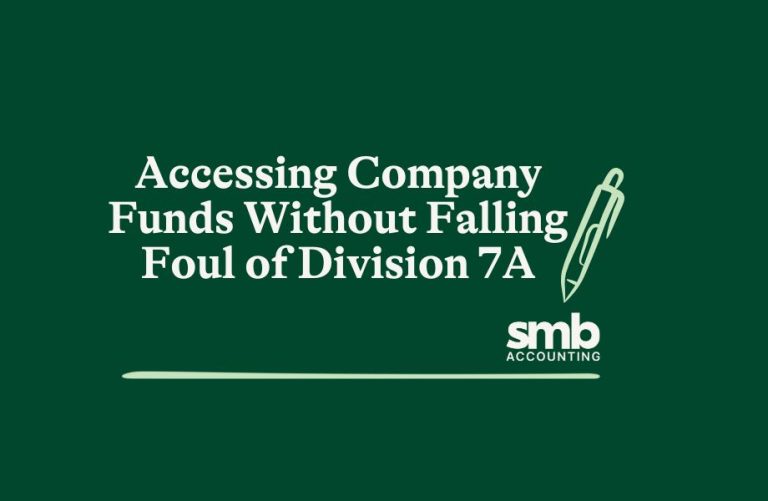Handling financial statements can be tricky, especially when they’re tailored for specific purposes. These specialised documents, called special purpose financial statements, cater to particular needs and provide detailed insights about a company’s fiscal status. They’re not like general-purpose statements meant for a wide audience. Instead, they answer specific questions or meet particular requirements, which can vary from business to business.
For small and medium-sized enterprises (SMEs) on the Sunshine Coast, efficiently managing these statements is key. Whether it’s for tax reasons, investor discussions, or internal management evaluations, getting them right matters. Mistakes in these documents can lead to misinformed decisions, which can have ripple effects across the company. Understanding both their value and the common pitfalls that can occur is important to maintain the company’s financial health.
Understanding the Importance of Special Purpose Financial Statements
Special purpose financial statements are like a custom fit for businesses, tailored to meet specific needs. Unlike regular statements, which offer a broad overview, these are designed to answer detailed questions. This makes them especially useful for business owners who want to get a clear picture of particular aspects of their financial operations.
For example, let’s say a business is applying for a loan. The lender wants to see certain details that aren’t always in standard reports. A special purpose financial statement steps in to showcase this information, making it easier for both parties to understand the situation. Such specificity isn’t just beneficial. It’s a smart way to cater information to an intended audience.
But what makes these statements so valuable?
- They target specific information needs, allowing for precise financial analysis.
- They’re adaptable, which means they can be tailored to suit the unique needs of stakeholders like banks or investors.
- They help make informed business decisions since they provide targeted data that can guide strategy and investments.
Despite their benefits, crafting these reports can pose challenges. They require careful preparation and attention to detail, as any slip-ups can distort the financial picture. Understanding them thoroughly and being cautious in their preparation helps businesses keep their finances in order.
Common Errors to Avoid
Crafting special purpose financial statements is no easy feat and errors can sneak in despite the best efforts. Recognising these pitfalls and knowing how to avoid them makes all the difference in maintaining accurate records. Here are some common errors that businesses often encounter:
- Inaccurate Presentation of Financial Information
- Misreporting figures or data leads to confusion and misinterpretation.
- Ensure that figures are carefully reviewed by cross-verifying them against original records.
- Inconsistent Application of Accounting Policies
- Applying different accounting rules can result in inconsistencies.
- Stick to one set of approved policies to maintain uniformity across reports.
- Misclassification of Assets and Liabilities
- Incorrectly categorising assets and liabilities affects the balance sheet.
- Regular checks and knowledge updates help in accurate classification.
- Omitting Relevant Disclosures
- Relevant details that explain the numbers might be left out.
- Always include disclosures that provide context and clarity.
- Lack of Supporting Documentation
- Missing documents make it hard to justify figures and statements.
- Consistently maintain records that back up the data in the statements.
Knowing these mistakes and keeping a cautious eye out can help prevent them. Regularly reviewing financial statements and ensuring they’re well-documented and consistent goes a long way. Attention to these details not only aids in compliance but also enhances the reliability of financial insights offered by special purpose financial statements.
How to Ensure Accurate Financial Statements
Creating precise financial statements involves more than just number crunching. It’s about implementing practices that ensure clarity and reliability. Regular reviews and audits are your first line of defence against inaccuracies. When professionals conduct periodic reviews, they offer a fresh perspective and can identify errors that may go unnoticed by internal teams. These experts provide assurance and can suggest improvements that align with best accounting practices.
Having reliable systems in place also plays a crucial role. Accounting software can streamline processes and reduce the chance of human error. By automating repetitive tasks, businesses gain efficiency and maintain consistency across financial records. It’s like having an extra set of hands that maintains everything tidy and up-to-date.
Training is another key to maintaining accurate financial reports. Staff who are updated with the latest accounting guidelines reduce the chance of mistakes. Regular workshops and training sessions ensure that everyone is informed about the nuances of handling financial data. This doesn’t just apply to new hires; even seasoned employees benefit from refreshing their knowledge, keeping them on their toes with current accounting norms.
Seeking Professional Help
Bringing in professional auditors can transform how a business handles its financial records. These experts have the skills to pinpoint areas of concern and offer practical solutions to rectify them. They ensure compliance with regulations and guidelines, which is crucial in avoiding legal pitfalls.
When professionals audit your statements, they don’t just fix what’s broken. They provide insights that can drive better financial management. This proactive approach isn’t about quick fixes but building a foundation for better decision-making and strategy. For SMEs on the Sunshine Coast, this kind of intervention can be a game-changer. It’s about investing in expertise that safeguards and strengthens your business’s financial health.
Optimising Special Purpose Financial Statements for Clarity and Trust
Managing special purpose financial statements isn’t just about avoiding mistakes. It’s about taking a proactive stance to enhance the quality and reliability of these vital documents. Regular audits, training improvements, and robust systems are all part of the recipe for success. By recognising and addressing common errors, businesses can maintain clarity and trust in their financial reporting.
Choosing to collaborate with professionals ensures that financial statements not only meet but exceed expectations. With the right approach, a healthy financial picture emerges, enabling better decisions and a stronger footing in any business venture. Keeping finances clear and understandable is not just a task; it’s a strategic advantage.
Ensure that your financial records not only meet compliance standards but also support informed business decisions with SMB Accounting. Our expertise in special purpose financial statements is here to guide you through every detail, so you can focus on your business’s growth. Reach out today and let us help you maintain precision and clarity in all your financial dealings.



